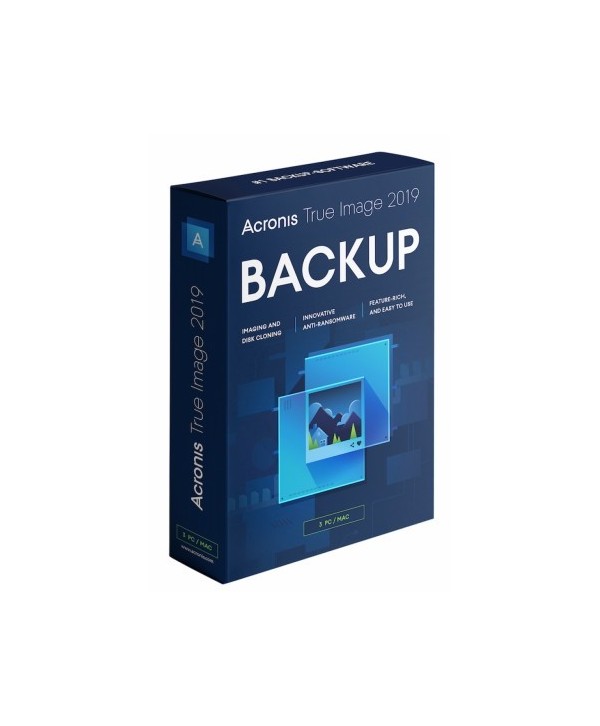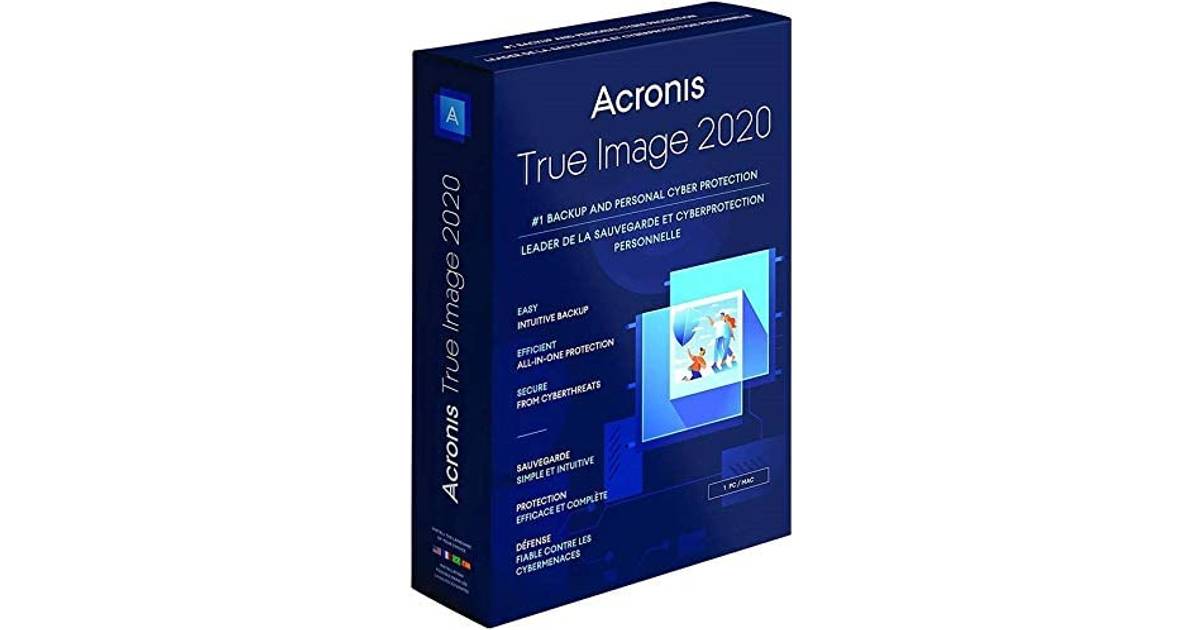


If you’re backing up to the cloud, you’ll need a subscription to the Advanced version instead: for 250GB of space, you can pay $50 per year for one computer, $80 per year for three computers, or $100 per year for five computers.


The Standard version is a one-time purchase of $60, which just gets you a license to the software that performs local backups. The structure of that subscription fee is a bit confusing at first, but the comparison wizard helps you choose what’s right for you. Acronis lets you back up to an external drive, a NAS, or to Acronis’ cloud servers (if you pay a monthly subscription fee). The backup process itself is dead simple, taking only a few clicks: you can back up certain folders and files, or back up an image of your entire machine. It explains every feature as you set it up, so you don’t have to click on "help" Icons to find out how anything works. Buttons are big and clear, your storage is color coded so you can see what’s taking up space, and Acronis’ many, many tools are organized neatly into sections away from the main backup window. Acronis True Image – Design, Features, and Pricingĭespite being an advanced backup tool, Acronis’ interface is very user-friendly. I thoroughly evaluated Acronis True Image along with several other leading packages based on three main criteria: pricing, features, and performance. By choosing this option, after the first successful backup, your backup and replication will be done simultaneously.Cloud backup options vary wildly in price and functionality, and are increasingly necessary for peace of mind and data security. With Acronis Cyber Protect Home Office, you also have the ability to automatically replicate local backups in the Acronis Cloud, so you always have an off-site copy of your data available without having to manage a separate backup plan. Subscriptions to the Advanced and Premium editions of Acronis Cyber Protect Home Office (formerly Acronis True Image) include cloud storage, as well as cloud-based features and "anywhere access" to your data. The cloud is a convenient way to store your files off-site, where they are safe from local damage. "The cloud" is a term that describes a remote network of computers and servers that you access via the internet. That way, if a fire or flood damages both your original files and the local backup, the off-site copy is available to use for recovery. Acronis recommends the 3-2-1 backup rule, which includes storing three copies of your data on at least two different types of media (such as external hard drives, network drives, and NAS devices) and keeping one copy off-site. Computer backups need to be stored someplace safe.


 0 kommentar(er)
0 kommentar(er)
